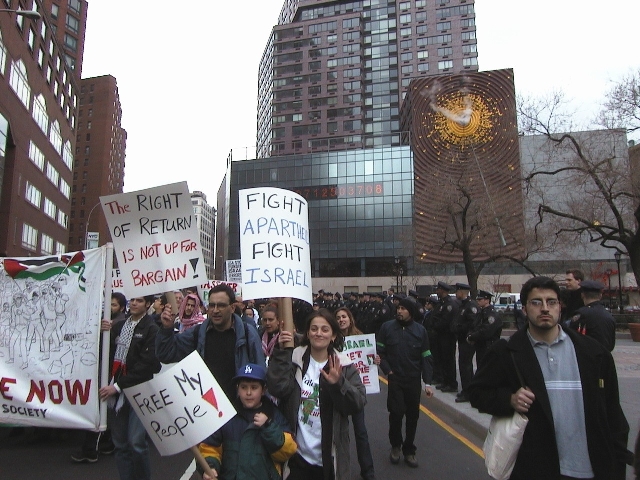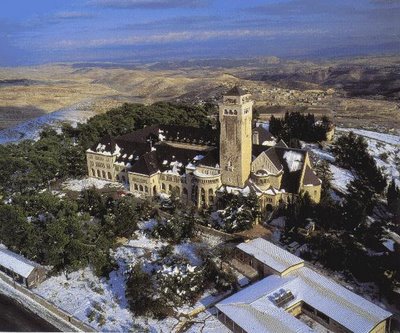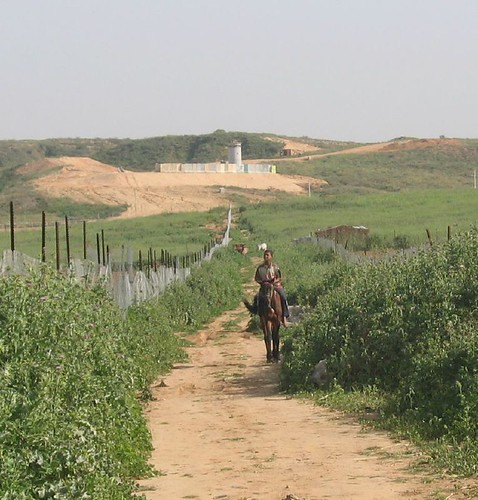
Before you read this post please read
Part 1. It is important to get a full and complete understanding of the similarities and differences of the Israeli Apartheid versus the South African Apartheid. This article will deal with the DIS-similarities of the two, that said...read on!
First of all, what are key differences between South African apartheid and Israel’s policies toward its Palestinian citizens?
I will concede without a fight that in Israel, there is a lack of formalized separation of the kind practiced in apartheid South Africa. Another key difference is that while white South Africans
sought to exploit the labour of the nonwhite community under apartheid, Israel has more often
sought to displace Palestinians from as much of their land as possible and keep the land for Jewish use.
Land confiscation began in 1948 and has continued ever since. In 1948, approximately 750,000 Palestinians (three-fourths of the Palestinian population) were either forcibly expelled by Israeli troops or fled in fear during the war. Israel bulldozed over 450 Palestinian villages into the ground and took over other freshly 'evacuated' villages for Jewish settlement. Confiscation of private property of Palestinian citizens of Israel continues to this day.
Beginning in 1967, confiscation of Palestinian land extended to the Occupied West Bank and Gaza, and especially Occupied East Jerusalem which is where I am from. In the Occupied Territories, Israel has seized private Palestinian property, built hundreds of illegal Jewish settlements and expelled Palestinian residents of the West Bank and Gaza.

Here's one of the 'technical problems' posed by Israeli friends who have written to me: Is it fair to consider Israeli policies in the West Bank and Gaza a form of apartheid, when these areas are not 'technically' part of Israel?
Well, in the early years of Israeli occupation of the West Bank and Gaza Strip, it might have been unfair to regard its system of military government of the regions as a form of apartheid; discriminatory policies against the Palestinians might have been viewed as a temporary incident of the armed conflict in 1967 and its aftermath.
But Israel has now maintained control over these territories for
nearly forty years, a period two-thirds as long as Israel’s entire history as a country (58 years as I write this). Even after the 2005 withdrawal of Jewish settlers from Gaza, Israel continues to control entry and exit of all people and goods and in other ways continues to determine the fate of Gaza Palestinians, I urge you to read my friends blog
Raising Yousuf for all the day-today trials. Moreover, Israel has annexed East Jerusalem, and announced its desire to permanently control up to nearly half of the West Bank, possibly including the Jordan Valley. For all intents and purposes, Israel and the Palestinian territories it controls have functioned as one integrated economic and political unit. It is no longer possible to view an occupation of such long duration as a “temporary phenomenon”.
It is in its administration of these territories that Israel exhibits the strongest parallels to apartheid.
- Palestinians living in the West Bank and Gaza have even fewer rights and freedoms than those with Israeli citizenship. They have no political voice in Israel, even though Israel effectively rules their lives.
- Separation and discrimination is most apparent in the two distinct legal systems applicable to Jews and Palestinians – Israeli Jews illegally living in the West Bank are subject only to Israeli laws, and enjoy the right to vote, and the right to travel within Israel and abroad. Palestinians living in the same territory cannot avail themselves of Israeli law, have no right to vote in Israeli elections and can travel freely neither within Israel nor abroad.
Separation and discrimination are also evident in:
- An extensive road system built by Israel throughout the West Bank that Palestinians are forbidden to use. These Israeli-only roads bisect Palestinian land and impede West Bank Palestinians’ freedom of movement. That's right 'special roads' that Palestinians are not allowed to use.
- Palestinians in the West Bank often require permission simply to travel from one village to the next, and must pass through numerous Israeli military checkpoints. This is reminiscent of South Africa’s infamous “pass system” which controlled the movement of blacks.
Bishop Desmond Tutu, a South African anti-apartheid leader,
described what he saw during a visit to Palestine as "much like what happened to us black people in South Africa. I have seen the humiliation of the Palestinians at checkpoints and roadblocks, suffering like us when young white police officers prevented us from moving about."
Israel has begun to confine Palestinians to
small, encircled enclaves in the West Bank similar to the infamous “Bantustans” that South Africa created for blacks.
- Palestinians in the West Bank and Gaza do have the right to vote for the Palestinian Authority, but that body has only the trappings of sovereignty – postage stamps, passports, a police force – and lacks real power. The Palestinian Authority has no jurisdiction over Israeli settlers and settlements in the West Bank, borders, airspace, water resources, its population registry and numerous other spheres that regularly fall under government control like tax collection.
- Although occupied in 1967, East Jerusalem was illegally annexed by Israel. The Palestinian residents of East Jerusalem are not citizens of Israel, only "legal residents" who must regularly prove connections to Jerusalem in order to continue to reside there. They face enormous legal obstacles to family unification and unequal access to housing, municipal services and other social benefits. They are treated as the equivalent of "foreign guests in their own country", without the right to vote in national elections.
South African law professor and United Nations Special Rapporteur for Human Rights in the Occupied Palestinian Territories (OPT) John Dugard said to the UN General Assembly that “Israel’s conduct in the OPT poses the same kind of challenge to the credibility of international human rights that apartheid did in the 1970’s and 1980’s. There are gross, egregious and systematic violations of human rights and international humanitarian law in the OPT, committed not by undisciplined and uncontrolled militias but by
one of the most disciplined and sophisticated armies in the modern world, directed by a stable and disciplined government.”
Another one of the disputed ideas is Palestinians calling Israel’s “security barrier” the “apartheid wall”.
This wall, which physically dwarfs the former Berlin wall, secures Israel’s control over confiscated Palestinian land and separates Palestinian communities from each other. Special regulations require Palestinians to obtain permits even to approach the wall in some areas, while Jewish people are able to enter these same areas unrestricted.
If the sole purpose of building the wall had been to provide security for Israelis, it would have been built along the internationally recognized 1967 border (the “Green Line”); instead, it has been built on Palestinian land and in some instances
right through the middle of Palestinian towns. Its additional result is to maximize Israeli control over Palestinian land, thus guaranteeing Jewish demographic predominance within areas of Jerusalem and the West Bank that Israel hopes to retain.
In 2004, the International Court of Justice ruled that the wall is illegal and must be dismantled, and ordered Israel to compensate Palestinians damaged by the wall's construction. It also called upon third-party states to ensure Israel's compliance with the judgment.
The world opposed South Africa’s racist government and imposed sanctions on it (except for Israel, which maintained a close relationship with apartheid South Africa). Much of the world deplores Israel’s institutionalized discrimination. The U.S. government is aware of Israel’s record of discrimination, as its State Department reports demonstrate (see Part 1). But U.S. political leaders, to date, have not required Israel – for example, by placing conditions on
economic or military aid – to abandon its discriminatory policies against Palestinians.
I believe this - Jewish nation in Palestine - 'experiment' has been a dismal failure and we need to admit that in order to move forward. The amount of money and energy spent to keep the people of Palestine (Jews, Muslims, Christians) apart can be better used. The 10's of millions dollars spent should be used to integrate the two populations through social programs, education and whatever other means possible and not to keep them apart.
The two state solution is NOT a solution. Opening the door to understanding between the European Jewish refugees (and their descendants) and the indigenous population of Palestine is the
only solution.
Stand with me for a FREE and re-United Palestine.

























